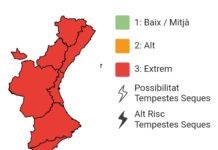January 22
Email
To the Editor,
In the matter of Brexit, I feel that I should make some intervention in view of the much guess work and or, inaccuracies revealed in some of the letters from your readers, with some writers even patting each other on the back for their letters, despite such letters frequently being wildly inaccurate and with many also amounting to mere guess work.
Your readers can be sure that when giving advice to others, I only deal with fact, evidence and the law. Further, when I give advice to others I do so under my name and not anonymously.
Before reading any of the letters in your ‘Letters to the Editor’ page my experience has taught me to first read their topic and then from whom they are from. Once I see ‘Name withheld’ beneath a letter I regard it as suspect and most likely to be sending out the wrong or inaccurate information.
I have no wish to become involved in the pros or cons of the Brexit argument, save where it is necessary to emphasise some point.
My purpose in writing at this time is so as to request all those readers with a concern about the possible future effects on their lives in the post Brexit legal context, whatever the final outcome, to desist from attempting to advise their fellow citizens in matters where it has become quite obvious to me that they are not competent to do so.
A great many expats have contributed to this matter, especially more recently and I have been monitoring their content, often with dismay as to the all too frequent lack of proper understanding as to what Brexit entails whatever the final outcome. Indeed, as we all know, even our government still remain in utter confusion.
To put matters into proper balance and in order to identify my own concerns, I will refer to a rather lengthy anonymous letter from a reader in Pedreguer, published in your 4-10 Jan edition under the heading, ‘To whom it may concern….’
But firstly, let me say that it is never my intention to insult others, because I leave that to the few respondents who choose to do so. I say this because of earlier letters criticising journalists of this newspaper, without any proper foundation, when the journalists were merely setting out their own points of view.
Also I do so because of the rather offensive on-going exchange resulting in the letter published in your the current edition (18-24 Jan.) under the heading, ‘Why should I leave Spain if I don’t want to be in the EU?’, in which the writer roundly infers that the EU is a dictatorship and then stated, when referring to the writer of an earlier letter, “Are you so stupid that you cannot see this? The writer followed this up by referring to the earlier writer, apparently a lady, as ‘being in need of medical help’. This was followed later with his usage of spurious monetary figures, having stated, ‘….do not try to lecture me on what I know about the EU’. Ironically, the writer concludes his letter by announcing that his health care in Spain is paid for by the UK!
In respect of this latest letter I should first like to say to the writer that if you lose your temper you will invariably lose your argument and “Yes, you do need some lecturing on the manner and way in which the EU functions”, even though having myself, had many dealings with the EU’s various sub-Commissions over many years now, I would be amongst the first to say that the EU is not perfect and that there is a need for improvement, but that can also be said about the way our own government functions, especially when considering the shambolic mess they are currently in over Brexit.
For the benefit of this writer, let me explain how the EU works. First and foremost, every Member State is bound by the Treaty on the Functioning of the European Union (TFEU), to which they have signed up to, and this also includes all of its functionaries. The Commission is the executive wing of the EU, which is not unlike our own Permanent Ministries.
The Commission proposes new law as well as proposing amendments to subsisting law, but even here subsisting law cannot normally be changed beyond 30 days following its publication in the EU’s ‘Official Journal’. This is so as to maintain legal certainty within the EU.
Such proposals are then placed before the Council for the EU, which is comprised of a Minister from each of the Member States. Proposals must then be passed by a double majority, meaning greater than or equal to 55% of governments representing 65% of the Union’s citizens.
A proposal may be blocked, but must be by at least four Member States. If approved by the Council, the proposal is then put before the Parliament, which may approve or reject it. For a proposal to be adopted it then requires a simple majority, of not less than 50%.
The Parliament is comprised of pro rata members from each of the Member States. Admittedly, the presiding President of the EU or the Chair of the Council are not elected by Union citizens, but then neither is our own Head of State, our Prime Minister, other than where they are elected to represent a constituency and neither are members of the Cabinet, or indeed leaders of our Opposition.
With regard to the above writer’s comparison as to the difference in respect to monies paid from UK funds for the healthcare of expats and their family members to Spain, this is simply due to the fact that there are more expats, including their family members, residing in Spain, than Spanish nationals and their family members resident in the UK.
Let me also advise him that the EU’s Social Security Coordinating Regulation EC/883/2004 leaves it to the Member States to organise their own social security systems, including the decision as to how they will recover their costs when funding the healthcare of its own (insured) citizens residing in another Member State.
Indeed, the UK and Spain have opted to pay a fixed sum each year in respect of such citizens, whereas most of the Member States, including say, France, have opted to refund the actual expense incurred by its insured citizens.
For completeness I use the expression insured persons/citizens, because such entitlements to benefits in kind do not only apply to those in receipt of their state old-age pension, it also applies to those in receipt of some sickness related benefit.
This writer also wrongly infers he has no entitlement to other social security benefits in kind in Spain, whereas he is entitled to receive such other benefits in kind on the same basis as Spanish nationals and at the expense of Spain.
This would include such matters as help in the home for the elderly or disabled citizens for example. Further, I have, in the past, been able to secure such assistance for our fellow expats, although my past work pales into insignificance when considering the noble work currently being carried out by a large number of expat charitable organisations. They should never be forgotten.
I now return to the anonymous, ‘To whom it may concern’, letter from a person in Pedreguer, published in the 4-10 Jan. edition. Since this person offers his, ‘Comments, advice and thoughts’. I have to offer my own observations because, whilst I do not question his best intentions, in real terms the advice he offered in his lengthy letter contained not only a number of important inaccuracies, but also because in a later edition of the CBN he received a pat on the back for his letter.
The writer’s first faux pas was when referring to the PM surviving a no confidence vote in Parliament, whereas, this vote was conducted from within the Tory Party, albeit he got his figures right. Of course, this was before the PM’s resounding defeat by a 230 majority on 15 Jan, in respect of her Brexit deal.
The writer then goes on to wrongly ‘warn’ that, beyond Brexit the ‘UK’ driving licence may no longer be valid on European Roads. I have to tell him that a UK issued driving licence will still remain valid, should there be a no deal Brexit, for those seeking to make temporary visits to the EU (Schengen area) and all that may change for such citizens would be a requirement to possess an additional supporting document, namely, an International Driving Permit (IDP), which is currently required by certain other third countries.
I should stress that the IDP is not issued in replacement of a driving licence, but as an internationally recognised supportive document in accordance with the Geneva Convention (Last up-dated in 2011). I should also say that, at this time none of us know as to whether there is to be such a requirement, albeit our government have announced that the IDP’s will ‘continue’ to be issued at selected Post Offices, with their locations yet to be announced.
Further, at this time we also do not know whether any of the remaining EU states will require its UK residents to exchange their existing UK issued EU model licence for a model issued by their host state when taking up residence, including those already resident.
This is because even though current EU law (Directive 2006/126/EC) requires that the EU model driving licence must be mutually recognised by each of the Member States, in view of the much uncertainty surrounding Brexit and in line with the advice of the Foreign Office, it would be a sensible precaution to do so now so as to avoid the possibility of any future difficulties.
Further, it is also important for me to say that current Spanish law already makes provision for this at Article 18 of Royal Decree 818/2009. I would also add that the old open-ended UK paper licences are no longer recognised within in the EU in respect of holders taking up residence in any of the other Member States.In any event UK citizens resident elsewhere in the EU are currently, also required to exchange their EU model driving licence to one of their host state upon its expiry, when they will also be required to submit to the application procedures laid down by that state in accordance with the provisions of the above EU Directive.
It is also important for me to add that, whilst we do not know at this time, it may become necessary in the future, for those taking up residence within the EU, to be required to take a mandatory driving test in their EU host state.
I should also add that UK nationals, having already exchanged their UK driving licence for the Spanish EU model, may again exchange them for the UK issued model should they again take up residence in the UK.
Further, it is not known at this time as to whether expats returning to the UK to take up residence and where they have obtained their EU model driving licence following a driving test in their host state, when, not having previously been issued with a UK licence, will be required to take the UK driving test. Such are the uncertainties we currently face.
The anonymous writer also sets out under his ‘advice’ under ‘Travel’, that citizens will need to be in possession of the new ‘blue’ passport following Brexit. Again, this is inaccurate advice, because although the UK intends to issue such blue passports from October 2019, immediately post Brexit, deal or no deal, the UK will continue to issue the pink passport, but with the reference to the EU omitted.
Further, all existing models of UK passports must be recognised worldwide in accordance with international law within their validity period, although for completeness there are derogations, including such matters as periods of validity or where a state does not recognise another state.
The only deviation in respect of the EU is that they will no longer be valid unless the expiry date is within less than 6 months before the holder’s entry into the Schengen area. Currently, UK passports can be renewed 6 months in advance of their expiry date with the period between that date and the date of new issue being added to the new passport. This addition to the UK passport expiry date will no longer apply, post Brexit, in respect of the Schengen area.
Whilst this writer does mention the forthcoming EU Visa system, not only does he get it wrong in respect of how it would affect British citizens, because it will not, he fails to mention the most important new European Travel Information and Authorization System (ETIAS) requirement in respect of third country citizens, which will apply to British citizens seeking to visit the Schengen Area post mid-2020 or 2021.
The new Visa and ETIAS procedure was adopted by the Council and Parliament on 14 November 2018, vide Regulation (EU) 2018/1806 which entered into force on 04 December 2018, and is expected to be up and running by June 2020 or is it 2021? We don’t know because two separate releases from Brussels provide different years.
As this ETIAS requirement procedure has already been aired in the CBN and the fact that it is still probably over 2 years away, I will merely advise readers that they can find out more on this link https://www.schengenvisainfo.com/etias/
However, it is important to add that, at this time, we still do not know as to how it will affect the already settled expats post any transition period.
With regard to this writer’s reference to healthcare, none of us knows what will happen in a ‘no deal’ scenario regarding the current UK funded healthcare entitlement for insured persons/ pensioners, who have settled elsewhere within the EU.
This is simply because our government have given it little, if any, real consideration as to your future rights, despite promises currently coming from our PM. I learnt as a very young man that one cannot spend promises as to the future, although in any event that would require separate UK agreements with each of the remaining EU states.
However, we have learnt, including from this newspaper, that the Spanish government is intent upon helping British expats in retaining their already acquired rights, including in respect of healthcare, and have promised to hopefully, introduce national legislation to that effect in February.
Further, in view of the above anonymous letter and the vagaries expressed by the writer, I would advise all those expats who spend a part of the year in Spain, often referred to as ‘swallows’ to seriously consider their status because come mid next year, or is it the year after?, the ETIAS document, whilst having a validity period of up to 3 years, or the expiry date of ones passport, whichever comes first.
It restricts the holder to visits to the Schengen area for up to 90 days only in any 180-day period – See Article 4 of EU Regulation 2018/1806. This means that those accustomed to spending a single visit to Spain, for say, up to 6 months at one time, will no longer being able to do so.
It is also quite clear that many expats are unsure as to what constitutes ones place of normal residence. Since this is a complex area of law, especially when also considering ‘domicile’ and ‘fiscal’ residence. Therefore, for simplicity almost all persons who actually live in say, Spain, will be regarded as a resident and almost certainly as a fiscal resident.
However, since there are distinctions between residency, domicile and fiscal residence and as no two person’s situation is the same, then if in doubt seek proper advice, because if you do actually live in Spain you will, nearly always be liable to make an income tax declaration. This is so even where your income is below the income tax threshold.
Failure to do so can attract penalties. Further, unless you make such a declaration you will not be able to benefit from the income tax concession should you decide to sell your home here.
Whilst I am sure that we can rely upon the Editor of this newspaper to bring you regular up-dates as matters progress, I would also advise all expats to keep themselves informed, not only by following the UK’s news media, but also the UK Gov website on https://euexit.campaign.gov.uk/ And additionally, where you have the opportunity, to attend the Consular ‘outreach’ meetings.
Finally, may I say that I will always give way to those more knowledgeable than myself.
David R. Burrage
Co-founder of the former Briish Exptas Assciation.










































